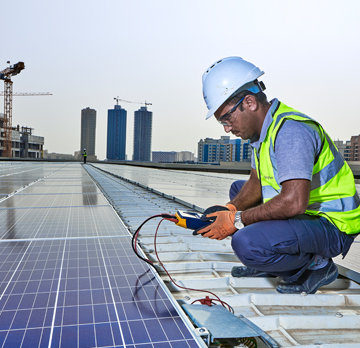
Access to reliable and affordable electricity is a significant challenge in many remote communities worldwide. While extending power grids to these areas can be prohibitively expensive, solar energy is emerging as a viable alternative that can power these communities sustainably. Beyond just being an eco-friendly alternative, solar panels in UAE offer a range of benefits to these remote communities. This article will explore solar energy’s role in powering remote communities, highlighting its benefits and challenges and how it’s transforming people’s lives in these areas.
Benefits of solar energy in powering remote communities:
Energy independence: Remote communities often rely on diesel generators to generate electricity. These generators are expensive to operate and maintain, and their reliance on fossil fuels makes them environmentally harmful. These communities can generate their electricity by using solar energy, reducing their dependence on fossil fuels.
Cost savings:
Extending the power grid to remote areas can be prohibitively expensive, making solar energy a more cost-effective option. Solar panels are becoming more affordable, and their cost will likely continue to fall in the coming years. Once installed, solar panels have meager maintenance costs, making them an attractive option for remote communities.
Environmental benefits:
Solar energy is a clean, renewable energy source that produces no greenhouse gases. By using solar energy, remote communities can reduce their carbon footprint, contributing to a healthier environment.
Challenges of solar energy in powering remote communities:
Initial costs:
While solar panels are becoming more affordable, the initial costs of installing a solar energy system can be prohibitive for some remote communities. This is particularly challenging for low-income communities that may need access to financing options.
Technical expertise:
Setting up and maintaining a solar energy system requires specialized expertise that may not be available in some remote communities. This can make it challenging for these communities to benefit from solar energy fully.
Weather conditions:
Solar energy systems rely on sunlight to generate electricity. In areas with low levels of sunlight or unpredictable weather conditions, solar energy may not be viable.
Battery storage:
Solar energy systems require storage to store energy generated during the day for use at night. The cost of battery storage can be a significant challenge for remote communities, and the batteries themselves can be difficult to maintain and replace.
